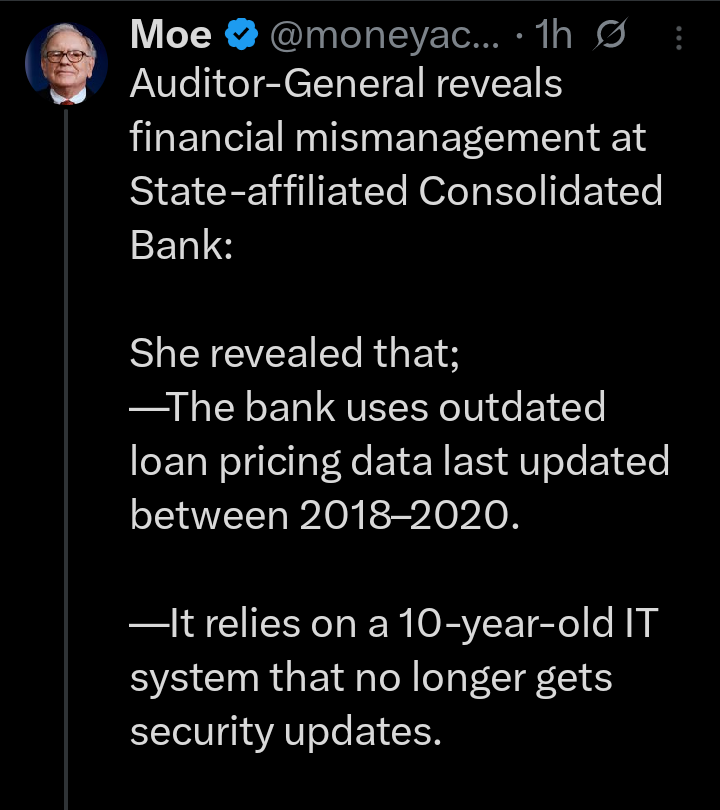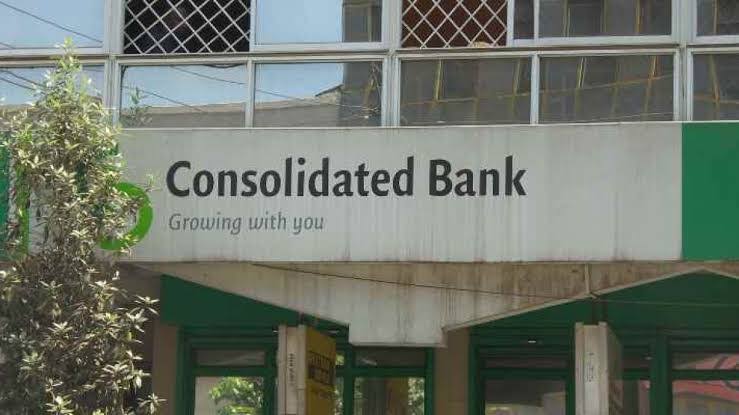The Auditor-General has exposed serious financial mismanagement at the State-affiliated Consolidated Bank, raising questions about how the institution is being run. In her findings, she revealed a list of worrying issues that show how deeply the bank is struggling, both in operations and in financial health.
One of the key issues is that the bank still uses outdated loan pricing data last updated between 2018 and 2020. This means the bank is likely making lending decisions based on old information, which could affect how it earns interest or manages risk.
In today’s fast-changing financial environment, using such old data puts the bank at a huge disadvantage. The report also pointed out that Consolidated Bank continues to rely on a 10-year-old IT system that no longer receives any security updates.
This not only slows down the bank’s services but also exposes it to cyber threats. As technology continues to advance, it is critical for banks to keep their systems updated for the safety of customer data and smooth running of operations. Despite this, the bank still cancelled a Sh200 million IT upgrade contract due to poor due diligence.
The Auditor-General revealed that the vendor awarded the job was different from the actual system provider, raising suspicion of irregular procurement practices.
The bank’s financial position is even more troubling. It has posted losses for nine straight years, showing a long-term trend of poor performance. To stay afloat, the bank had to borrow Sh4.7 billion from the Central Bank of Kenya by the end of 2024 as a liquidity support measure.
This means the bank cannot support its operations with its own money and had to be bailed out using public funds. At the same time, over half of its Sh8.2 billion loan book is concentrated in just one sector trade.

This puts the bank at greater risk if that one sector faces any difficulties, since it has not spread its loans across other industries. Another major concern is the way the bank is being managed. Several top managers have remained in acting roles for longer than the six-month legal limit. This kind of leadership uncertainty affects decision-making and accountability.
It also suggests that the bank may not be following basic human resource rules. The report also highlighted questionable spending, such as a Sh4.2 million legal payment made to a law firm that was not even pre-qualified to do work for the bank.
This goes against standard procurement rules and shows a lack of transparency and discipline in financial dealings. The picture painted by the Auditor-General is of a State-owned bank that has ignored financial rules, mismanaged its operations, and now depends on public support to survive.
Without urgent reforms, tighter oversight, and a change in management practices, Consolidated Bank could continue to be a liability to taxpayers and a weak link in the banking sector.





















Add Comment